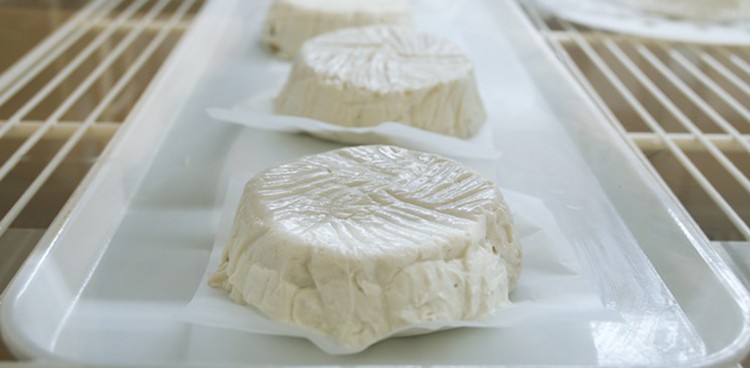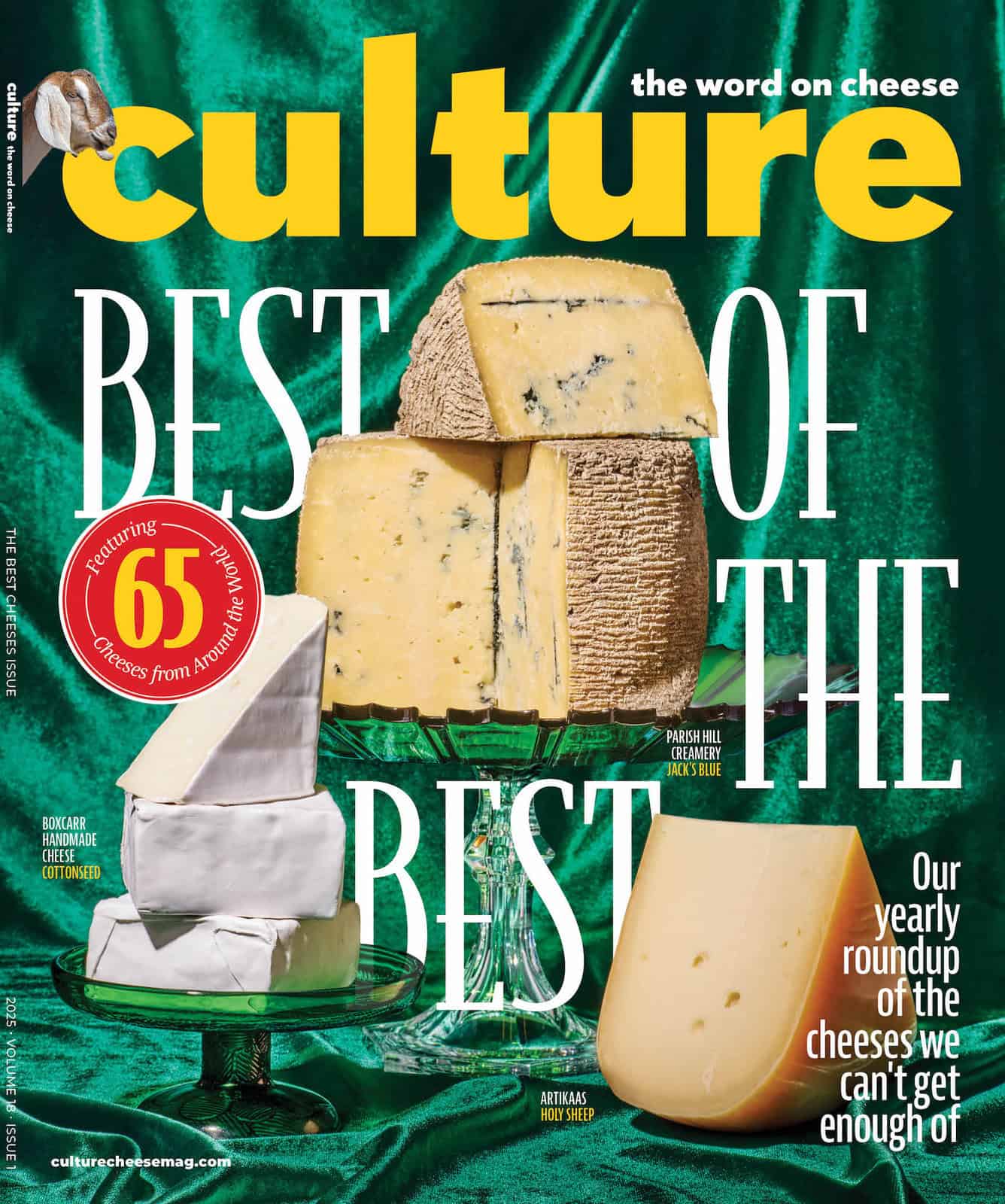
“Giving up cheese is the easiest part of becoming a vegan,” said no one ever. Vegans were forced to essentially delete the word “cheese” from their vocabularies until the 1980s, when nondairy cheese alternatives made their hard-to-find debut in small refrigerated sections of natural food stores. But these rubbery (both in texture and flavor) excuses for cheese were oftentimes still made with cow’s milk protein derivatives and therefore not suitable for vegans even if they could choke down the almost-inedible stuff.
Since then, however, cheese technology and innovation has taken delicious steps forward. Vegan cheese alternatives are getting swankier. No longer do nondairy cheeses merely pass as shredded rubber bands in bags. Primarily based in California, leaders of the latest artisanal vegan cheese movement are serious about creating products with delicate flavors, creamy spreadable textures, and bloomy rinds that rival the fuzziest Camembert. These cheese pioneers (and vegan godsends) include San Francisco-based Miyoko Schinner, a vegan chef and the founder of Miyoko’s Kitchen; Tal Ronnen, cookbook author, celebrity chef, and founder of Bay Area-based Kite Hill; and Youssef Fakhouri, a restaurateur and founder of Vromage, Los Angeles’s new (and first) vegan cheese shop.
The trick to creating delicious nondairy cheeses that taste like the real thing involves culturing nut and seed milks the same way one would dairy milk. Legally, the California Department of Food and Agriculture insists that these foods be termed “cultured nut products.” Milk from almonds, cashews, macadamias, and even pumpkin seeds are the base for many of these new, highly sought-after cheeses. Other ingredient add-ins include miso paste, soy milk, nutritional yeast, and vinegar for flavor enhancement. Decades of experimentation with these combinations have paid off: vegan and non-vegans alike are ordering vegan cheeses by the pounds. In fact, consumers increased their vegan cheese purchases by 22.7% in 2014 alone, spending $30 million on the delicacies.

Photo Credit: KQED Bay Area Bites
Cheesy vegan options from these makers include types like Classic Double Cream Chive, an Aged English Sharp Farmhouse, and a spreadable French Style Winter Truffle. Like burgers, mayonnaise, and chicken nuggets, cheese may be the latest was-animal product to reappear on vegans’ grocery lists everywhere. In fact, there are some vegan cheeses that taste so much like traditional types that consumers are hard-pressed to tell the difference. While these vegan cheeses are winning over even the most adamant of traditional cheese lovers, the cheesemakers want to make it clear that these new products are not exact replicas of traditional dairy cheeses. Fakhouri of Vromage notes that “the whole idea is not to imitate” but rather to make a product that tastes good. “You just have to give it a chance,” he urges hesitant dairy-loving skeptics.
If you salivated when you saw the pictures above, order Miyoko’s Kitchen and Kite Hill cheeses online or stop in to Vromage if you’re in LA. You can also find Kite Hill’s vegan ricotta at Whole Foods Markets nationwide.
- Miyoko’s Kitchen: http://miyokoskitchen.com
- Kite Hill: http://www.kite-hill.com
- Vromage: http://www.vromage.com



